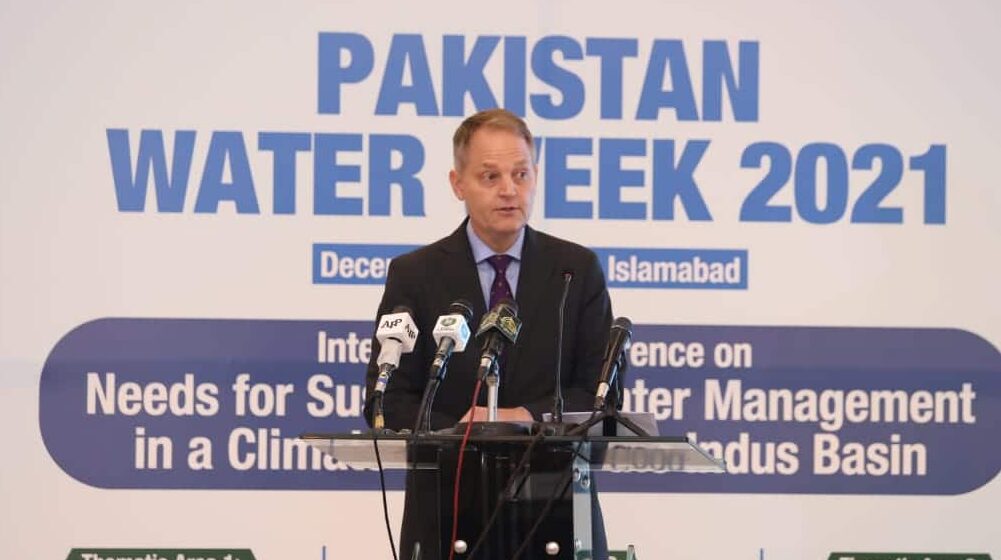President Dr. Arif Alvi has stated that Pakistan’s increasing vulnerability to climate change requires urgent action on water management and ensuring an improved system of water conservation at the national level.
He made these remarks while addressing the opening ceremony of Pakistan Water Week 2021, a four-day international conference being held under the theme ‘Needs for Sustainable Water Management in a Climate Crisis for Indus Basin’ in the federal capital.
The International Water Management Institute (IWMI), Pakistan is organizing the conference in collaboration with the Pakistan Council of Research in Water Resources (PCRWR) and the CGIAR Research Program on Water, Land, and Ecosystems (WLE). The conference is aimed at bringing together academics, government officials, NGOs, and policy experts from home and abroad to discuss the water issues facing the country.
Dr. Alvi said climate change was the key factor affecting the reliability of water resources across the globe and raising concerns about the future of water availability in countries including Pakistan.
He stressed steps to address the issue of water management, such as policy on water-pricing, and to develop a responsible approach among the masses to save valuable commodities.
He underlined the practices adopted to reduce water consumption, including drip irrigation instead of flood farming, water recycling, and reallocating water for more valuable uses.
Federal Minister for Science and Technology, Senator Shibli Faraz, said water conservation and management was an issue of major concern for the government in view of the depletion of groundwater resources.
He said managing the vast resources of Himalayan glaciers and the country’s fourth-largest aquifer was a big challenge to restore the ecosystem for the benefit of people.
To improve water governance, he said, data sharing was important. He highlighted that PCRWR and Capital Development Authority had signed a Memorandum of Understanding on artificial groundwater recharge, making Islamabad the first with such arrangement.
Director-General IWMI, Mark Smith, who was a keynote speaker at the event, highlighted that water security was globally under pressure like never before. “Stresses on water resources are converging, as population growth drives down per capita availability of freshwater,” he said, adding that much of the wastewater went untreated.
“We have to wake up to climate change. We have to be clear that climate change is water change, and that therefore water security has never been more important or more urgent,” he emphasized.
Mark Smith said, “This conference should be the start of a transformational journey for water management in Pakistan to safeguard the poor and marginalized communities and all the people of Pakistan.”
Country Representative IWMI, Dr. Mohsin Hafeez, warned that Pakistan would be facing water scarcity by 2035, especially in the face of climate change. “COVID-19 has also emphasized the importance of strengthening the resilience of water supply systems. Pakistan needs to redouble its efforts to achieve the goal of becoming an upper-middle-income country on its centenary anniversary in 2047. Therefore, the development investments and policies need to be informed by research, not hypotheses, no matter how plausible those hypotheses may be,” he told the gathering.
He added that the Pakistan Water Week provided the best international scientific practices and guidance for future investment to develop more climate-resilient water and land solutions in the Indus Basin.
The conference, first of its kind, will also focus on digital innovations, climate-resilient solutions, nature-based solutions, and the role of women’s leadership and of the media in the context of water will also be explored.


























